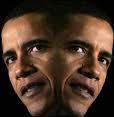America’s “Worst Case Scenario for Ukraine”
Ex-ambassador McFaul says

Former US ambassador to Russia Michael McFaul, who departed his position shortly before the current crisis in Ukraine broke out, has confessed in an interview to the Voice of America’s Russian service that Washington has a plan for an extremely catastrophic scenario in Ukraine. The diplomat also said he had asked the White House to reinstate him in his position after the crisis erupted around the status of Ukraine’s breakaway republic Crimea.
McFaul told the VOA he felt “responsible” for the situation the former Soviet member state had found itself in after the coup, which made him re-apply for his former office. He noted that Russia’s move on Crimea had happened the next day after he left for the United States, so he immediately felt he must go back and made a bid to restore his diplomatic status.

McFaul said he kept in touch with his colleagues in Moscow, the White House and the US Department of State, who had warned him Russia might be forced to take action if the February 21 promises by Ukraine’s President Viktor Yanukovych and the opposition weren’t delivered on.
The former ambassador refused to go in detail on Obama’s action plan for Ukraine, but stressed it was a worst-case scenario. This statement comes as the United States continues to beef up military forces close to Ukrainian borders.
The former ambassador, whose career in Russia spans a couple of tumultuous years, alleged that some Russian top officials had been “outraged” over Yanukovych’s surprise flight from Ukraine in early 2014.
He also described President Putin’s decision to protect the Russian-majority republic of Crimea as purely emotional, rather than rational.
McFaul suggested the move could damage Russia’s plan to build a strong Eurasian Union because if this scenario plays out, “you have made sure that the rest of Ukraine will never have any interest in joining a Eurasian Union.”
“It’s important for people to remember that his most important foreign-policy objective is to create the Eurasian Economic Union as a counter to the European Union. Critical to the success of that object was to have Ukraine in the economic Union, not Crimea but all of Ukraine,” he opined, adding that any Russian action in Crimea will dishearten Kiev and make any agreements between Ukraine and Russia highly unlikely.
The ex-ambassador, who has now returned to Stanford, where he was a professor with expertise in Russia before joining the Obama administration, said the Crimea move might pull Moscow and Kiev apart and cited the upcoming meeting between Barack Obama and Ukraine’s acting PM Arseniy Yatsenyuk where the United States is expected to confirm its financial support.
McFaul also defended the Obama administration’s “reset” policy, which he himself had put on track, saying that the intention was to “engage with Russia to seek agreement on common interests.” He said the focus should be on actions, rather than words, and pointed out a number of breakthrough achievements, including a fresh batch of sanctions against Iran, the New START nuclear reduction treaty and the Northern Distribution Network to Afghanistan.
Voice of Russia, News.ru.com

